Young Leave voters abused online in days after European Union referendum vote
- Published
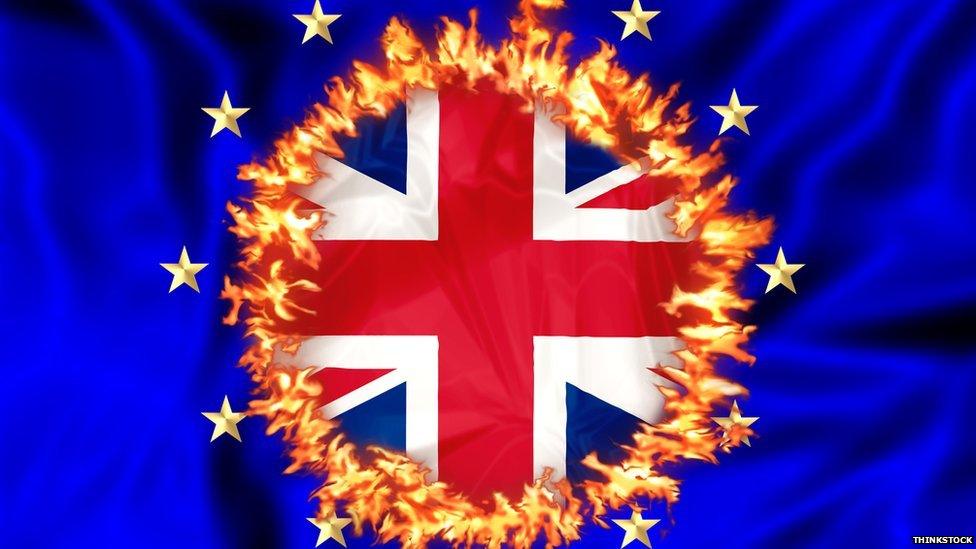
Young Leave voters in the EU referendum have spoken about the abuse they've received online since last week's Brexit vote.
Around 52% of voters in the UK voted to leave the EU, but many have been criticised online by Remain voters.
Young Leave voters have told Newsbeat that they've been labelled racist and xenophobic for their political views.
It has resulted in many Leave voters staying silent on social media for fear of attack and criticism.
"The main place I received abuse was on Twitter," 19-year-old Thomas Proudfoot tells Newsbeat.
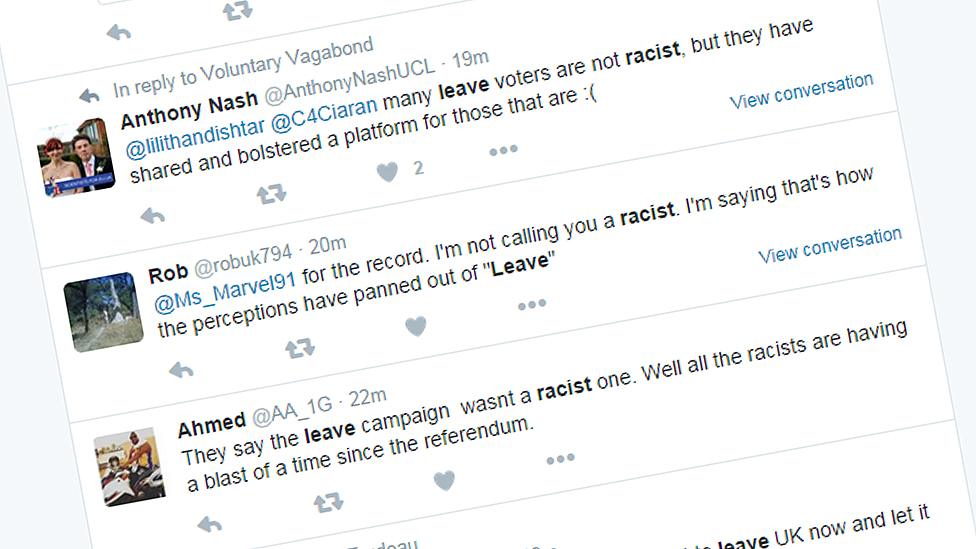
"People were getting quite aggressive towards me when I tweeted about how happy I was that leave won.
"I've had the term 'racist' thrown at me a lot as well.
"After replying to some of the tweets I just gave up replying in the end. It only caused more arguments."
Thomas says he voted for the UK to leave the EU because of the £350m a week Leave campaigners promised to put into the NHS if they won.
He describes Nigel Farage's u-turn on that promise as a "disgrace".
Nigel Farage said making the claim had been "a mistake" but it wasn't his claim in the first place.
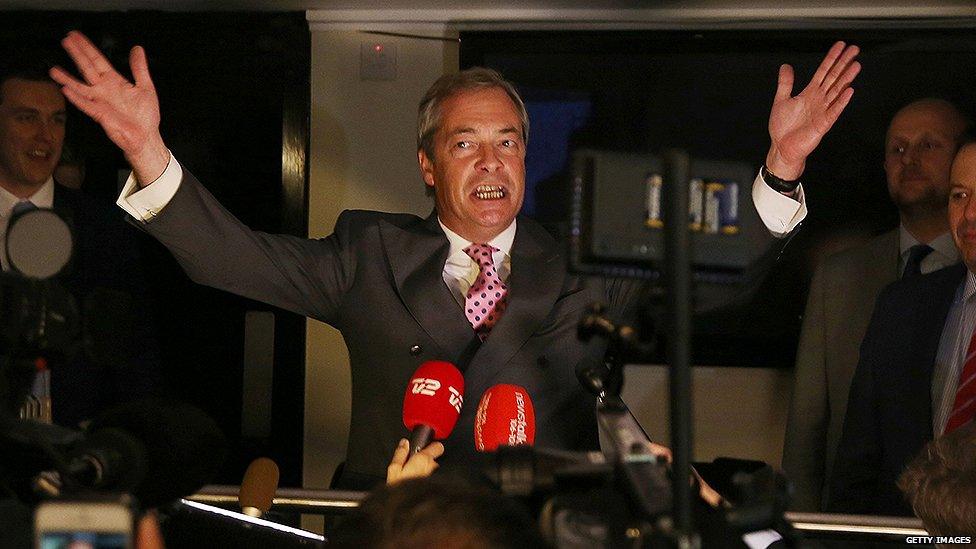
Nigel Farage says it's now up to parliament to decide if the NHS gets an extra £350m a week
Thomas hopes for tighter immigration laws and says he is saddened by recent racist attacks in the UK that have been linked to the Brexit result.
"I believe when it comes to the racist incidents in the UK, that these people are the extreme side of UKIP supporters," he says.
"They believed that voting out would completely stop immigration and that everyone who is not a UK national should leave the country.
"In this country there are a lot of people from other countries within the EU who come and work here.
"Compared to most people in the UK they are willing to work and earn money, not just sitting and claiming as much benefits as possible."
In the few days since the result of the EU referendum was revealed, many leave voters have shared memes defending their right to vote and the choice they made.
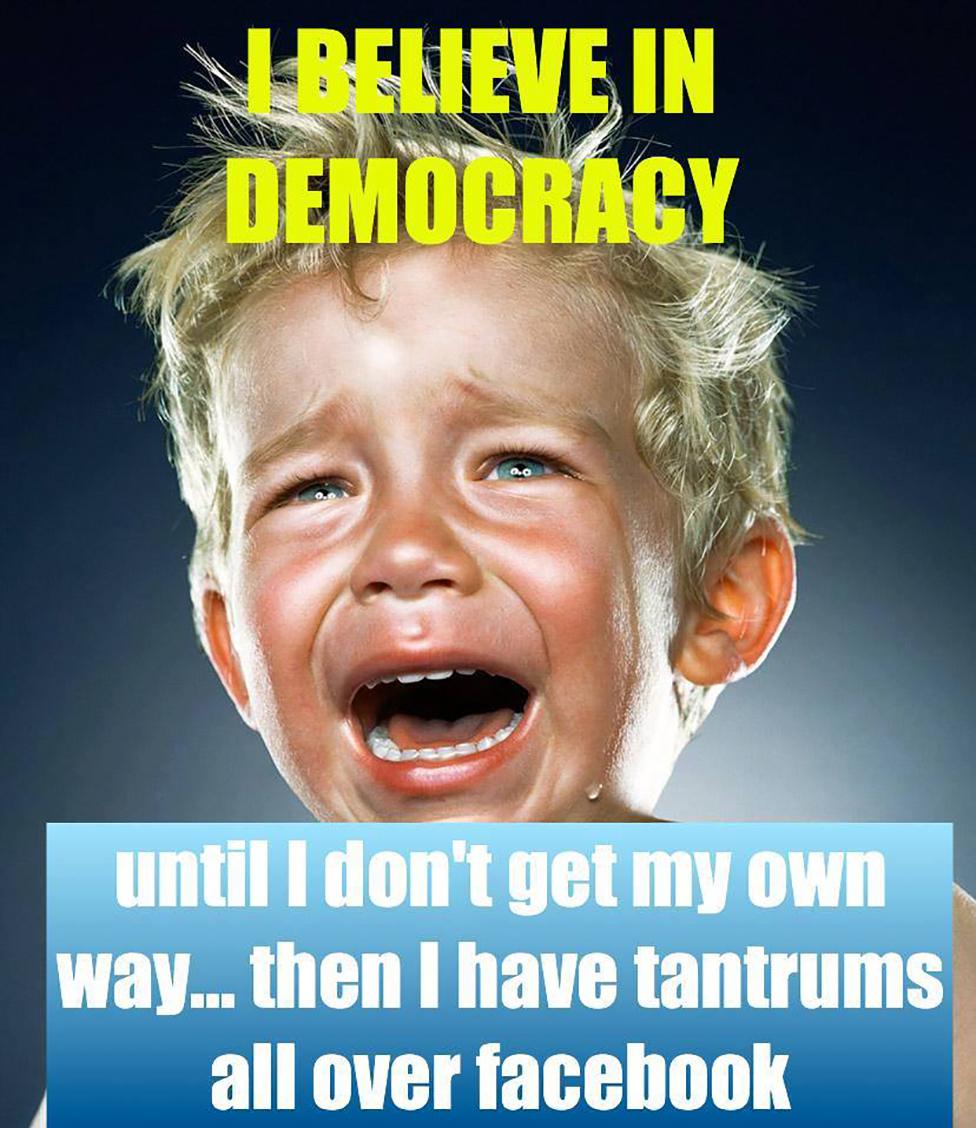
Twenty-year-old Leave voter Brandon Torrie is in a minority in Scotland, where 62% of voters (from a turnout of 67%) opted to remain in the EU.
He tells Newsbeat that dissatisfaction with the EU runs much deeper than the recent explosion of immigration in the UK and a perceived "migrant crisis".
"People have been ignored for 40 years on this issue," says Brandon.
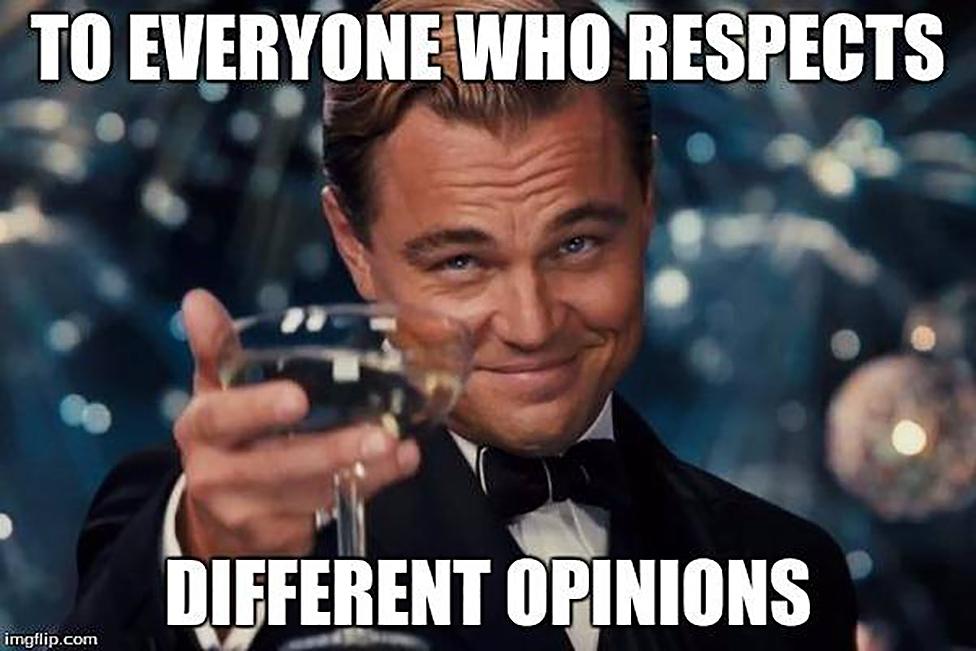
"People voted for a trading area. They didn't vote for relinquishing sovereignty, so it's been long overdue."
Like Thomas, he says he's faced criticism and verbal attacks - and not just on social media.
"Personally I've been called a racist and xenophobe, that sort of thing," he says.
"I've been called a stupid northerner.
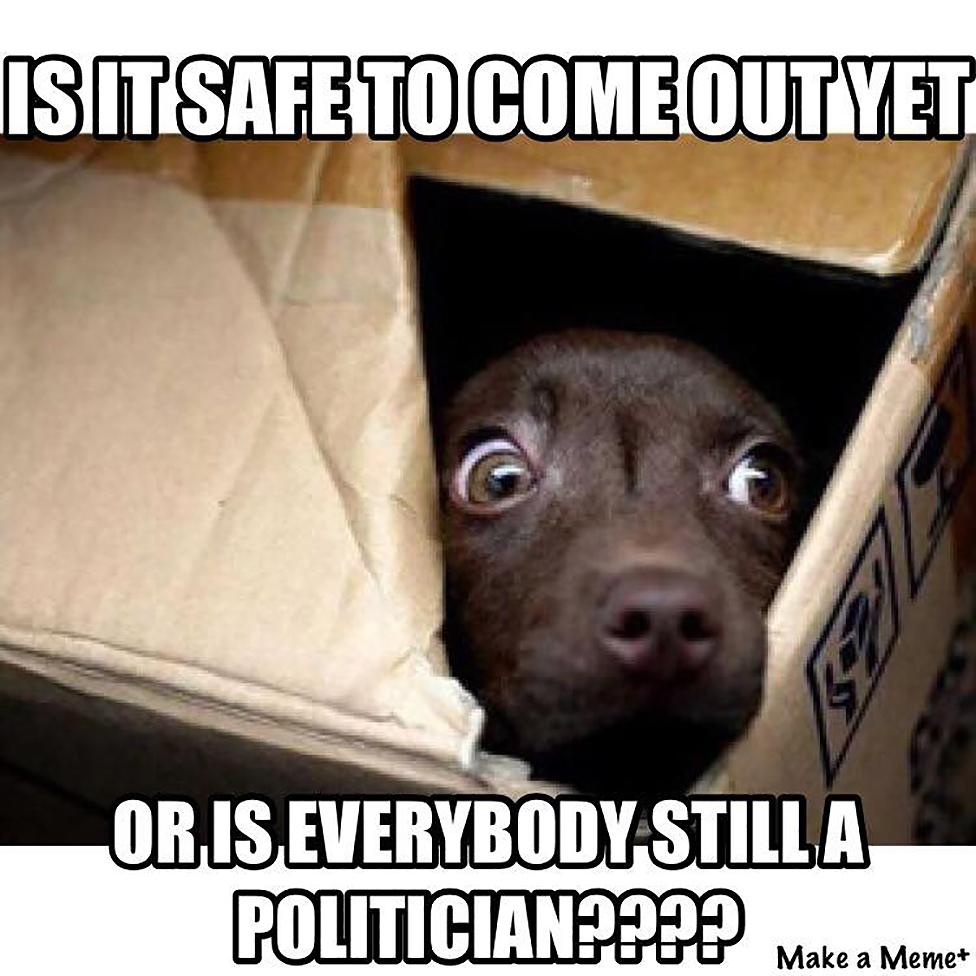
"You get called a racist xenophobe but obviously the silent majority of this country didn't want to remain.
"The shy voters were definitely on our side."
He also reveals friends and family disagree with how he voted.
"It has come from family too. They just can't comprehend why I'd want to leave the EU," he says.
"They just swallowed the entire government propaganda on the issue and that if you vote to Leave, you're just a massive racist."
Both Thomas and Brandon put their cross in the same box in the voting booth and have faced similar criticism in the days since.
But their opinions on the future seem to differ with Thomas feeling disappointed by early broken promises from the Leave camp.
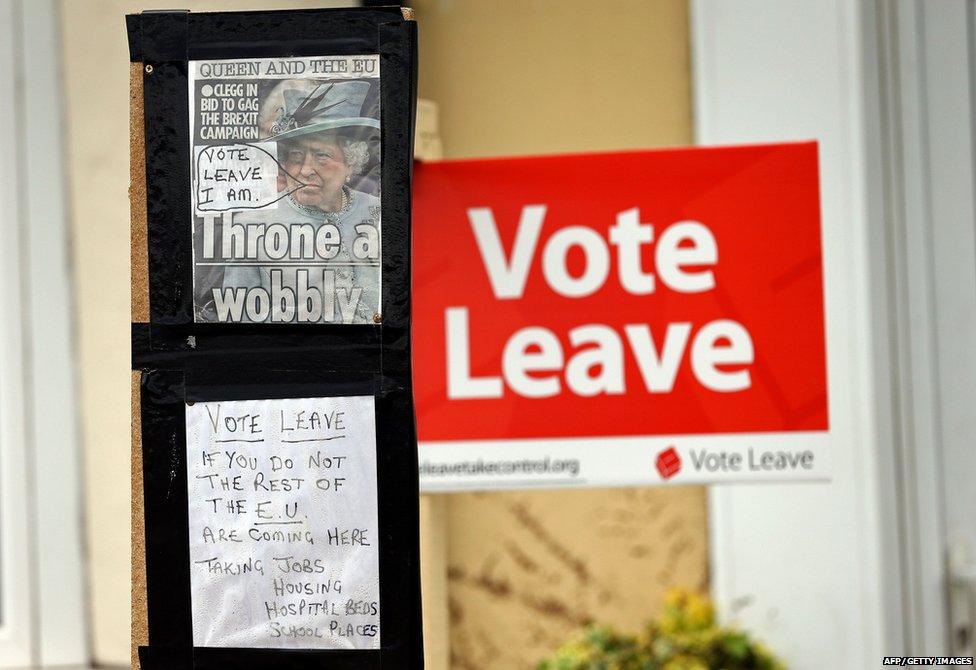
These signs were put up in Redcar, North Yorkshire
"I just hope they don't go back on any other promises they have made throughout the campaign," he says.
"I am slowly beginning to lose trust in politicians."
Brendan feels more empowered by the result and is waiting for the result of the referendum to be respected and implemented.
"I hope the Remain establishment respect the will of the people and they will invoke Article 50 eventually," says Brendan.
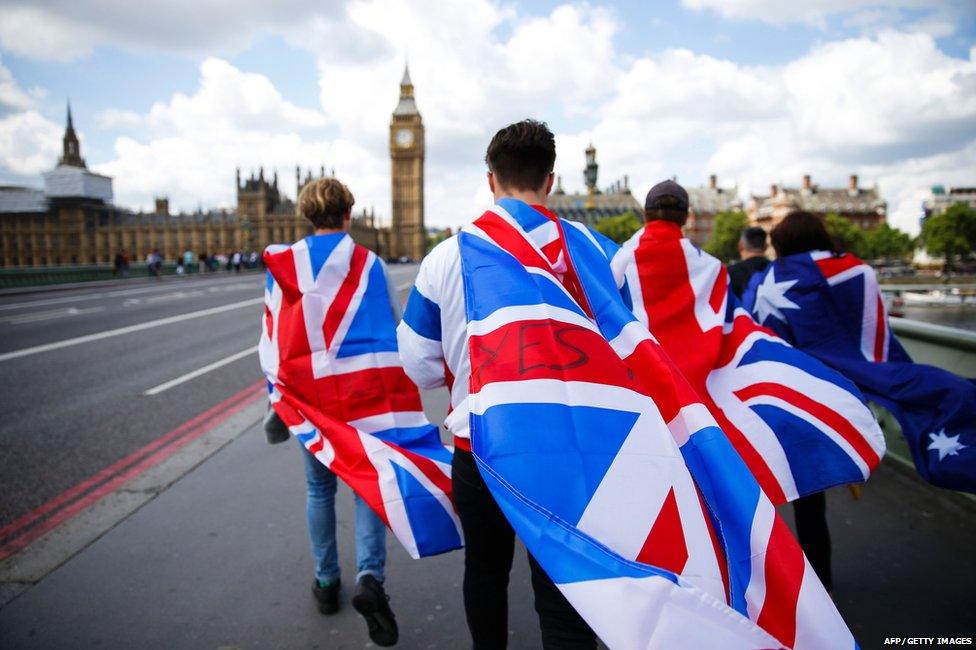
"There is an adjustment period taking place and that is being overblown by the media.
"We all knew it was going to happen."
The National Police Chiefs' Council (NPCC) has said that there has been an increase in reports to True Vision, a police online hate crime reporting site.
Between Thursday and Sunday there were 85 reports - a rise of 57% compared to the corresponding four days four weeks ago.
The NPCC said the figures only take into account reports made through one mechanism, and this should not be read as a national increase in hate crime of 57%.
Find us on Instagram at BBCNewsbeat, external and follow us on Snapchat, search for bbc_newsbeat